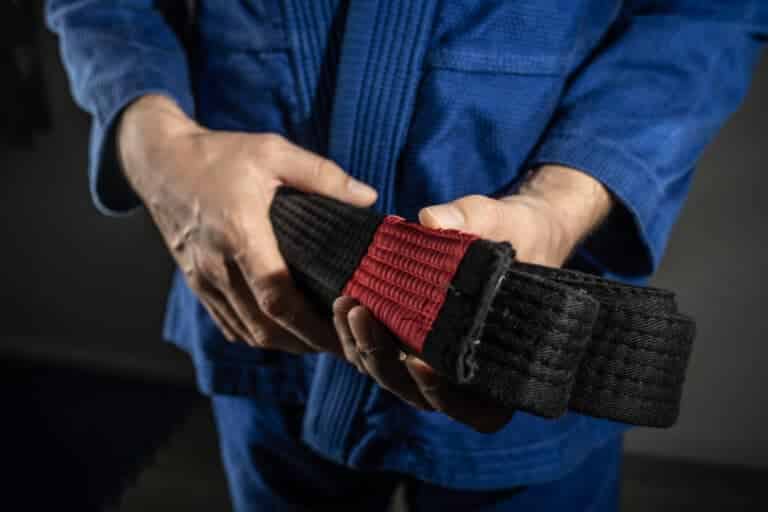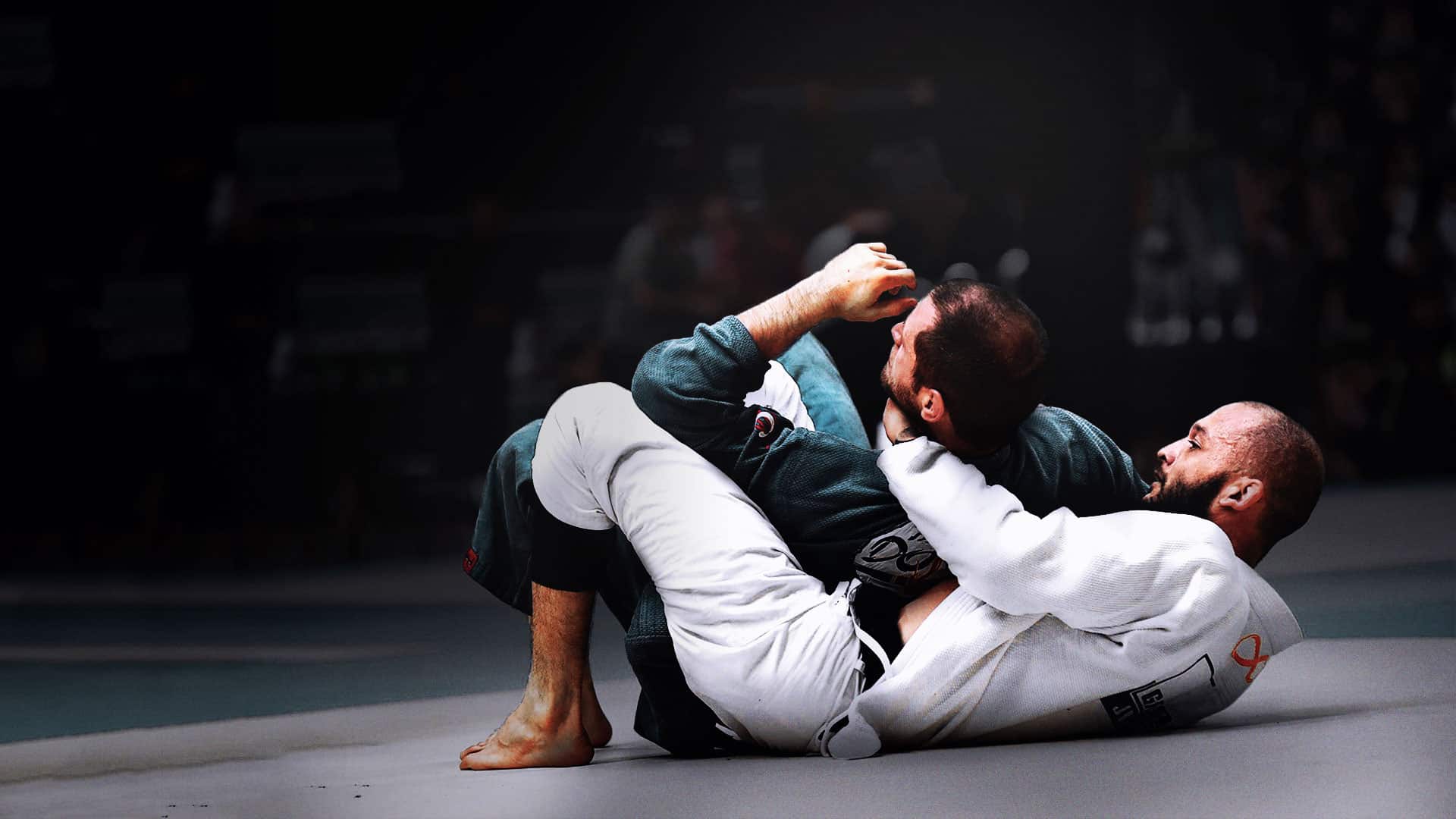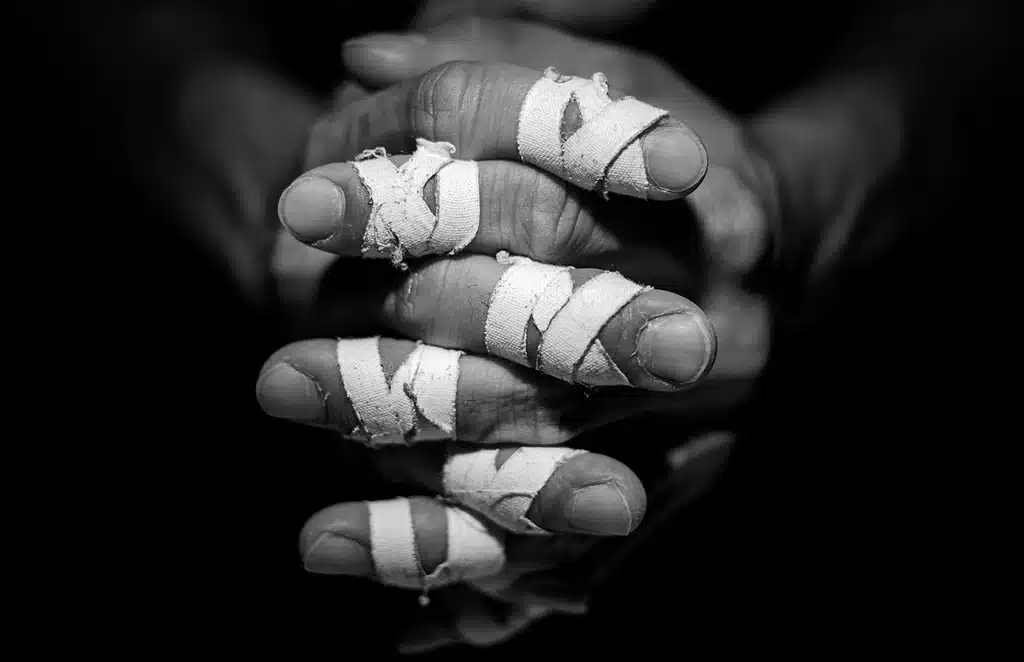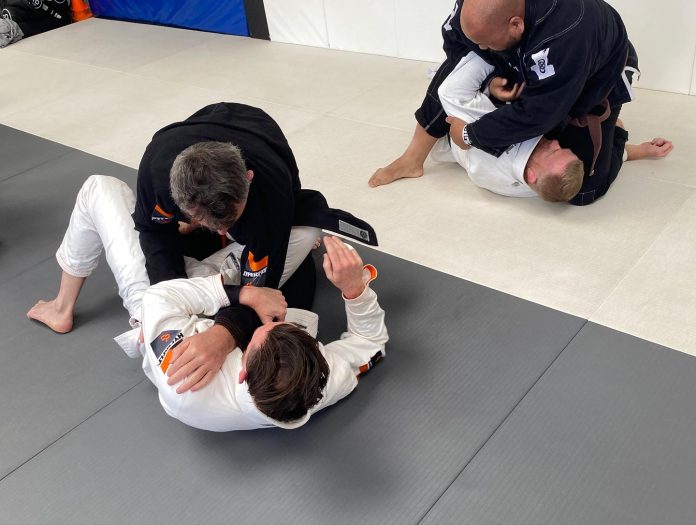Give Way to Senior Belts when rolling
Learning techniques and mastering the artistry of Brazilian Jiu Jitsu is essential, but so is an understanding of etiquette – especially concerning the senior belts. A fundamental unspoken rule in the dojo? Always yield to senior belts when it’s time for rolling – or sparring.
You might think, “Why do I have to give them precedence? We’re all here to learn, right?” you’d be talking sense. But remember, respect is a two-way street in BJJ, and showing deference to senior belts is part of the cultural fabric.
A black belt is just a white belt who never quit.
Unknown
Why Yield to Senior Belts?
It’s simple. The senior belt practitioners have spent years honing their skills—they’ve earned their stripes, figuratively and literally. Letting them take the lead in sparring sessions is a sign of respect. It’s not about being subservient or diminishing your worth—
it’s about acknowledging their expertise and embracing every opportunity to learn from the best. Plus, consider it a nod to the rich traditions and practices that form the backbone of BJJ—it’s quite a humbling experience.

If demoing something, ask for a lower belt to be your Uki
Why is it better to ask a lower belt to be your Uki when illustrating a technique? Well, it’s all about demonstrating respect and hierarchy in the gym. Let’s delve a bit into this unwritten code, shall we?
Consider this scenario: You’re a fresher in the BJJ world, eager to show off your newly learned armbar. Would asking for a higher belt to receive your demonstration be fair or respectful? Not really. Using a lower belt preserves the dignity of higher belts and gives you a lending hand to blossom in a supportive environment. Everybody wins!
Role of a Uki
When you ask someone to be your Uki, you ask them to be a helpful training partner. You ask them to trust you as you demonstrate a technique, often making them vulnerable. It’s a role that demands mutual respect and safety awareness.
What is a Uki?
Let’s have a natter about Ukis, shall we? An Uki is a Japanese term for your partner when you’re demonstrating a move or technique. These mat-star folks who generously offer their bodies are the unsung heroes in the dojo. Getting the opportunity to be a Uki means someone believes you can take a bit of a rough and tumble without whimpering about it.
But here’s the rub: being a Uki isn’t just about playing crash test dummy. It’s also about providing precise and valuable feedback. If you’re cranked into a pretzel and it doesn’t feel right, you’ve got to speak up. In the world of BJJ, silence isn’t golden—it’s a ticket to an unexpected physio visit.
Why Be an Uki?
Isn’t it just safer to keep your limbs intact and avoid the Uki role? Well, not so fast—there are solid reasons why you’d want to be a Uki. For one, it’s an excellent opportunity to feel the technique applied correctly, which helps your understanding of it. Higher-ranking students will likely offer teaching points and corrections when you’re Uki. Lastly, if you’re a good Uki, you can make friends and influence people—no minor consideration in an environment where people sit on other people’s heads for fun.
Embrace the Hierarchy
The pecking order in BJJ is apparent yet subtle. We don’t worship higher belts, but we acknowledge their journey and the knowledge they’ve accumulated like a smooth technique-collecting machine. You respect this hierarchy by roping in a lower belt as your Uki while getting your time in the spotlight. It’s like standing on the shoulders of giants—except the giants are on the mat with you!
So, when the time comes for you to demo something, look for a Uki who’s a lower belt. It’s not about choosing the weaker target but promoting a culture of respect and learning. Remember—You were once in their shoes, and how you treat them will impact their journey, too.

Sportsmanship and Fair Play
After all, we’re not just here to win – we’re here to master the art of Brazilian Jiu-Jitsu. And getting any art form requires, foremost, respect. So, how does this respect translate into the dojo?
It’s Not About the Win – It’s About the Learn
First, let’s get one thing straight: BJJ is not about crushing your opponent to the ground but improving yourself. Sure, it’s always great to win, but do we learn anything if we always succeed? Nope, we learn from our losses. So, instead of viewing your sparring partner as your opponent, consider them your co-learner. Help each other and grow together. Remember – the journey is long, but it’s also beautifully satisfying!
Injury rates in BJJ are relatively low compared to other combat sports.
Keep the Ego Outside the Mat
When you step onto the mat, leave your world-champion dreams at the door. What matters here is not your ego but respect, learning, and helping each other grow. If someone taps you — congratulate them. If you tap someone — help them learn how they can improve. We rise by lifting others, right?
Tap in Time, Tap Right
Tap out when you’re caught in a position where it’s impossible to escape. There’s no shame in tapping; it’s a sign of learning and growing. Plus – it may be the only saviour of your joint health.
Equally important – if someone taps, STOP. They’re trusting you with their well-being, and it’s up to you to respect that trust. So, as soon as your partner taps, stop applying the pressure and break the hold.
Respect the Tap, Respect the Body
Each one of us is different. Some are flexible like Gumby, some – are solid as a rock, some can take a punch, and some bruise-like peach. We need to respect these individual variations. If your partner says a technique is causing pain or discomfort, ease off and try something else. BJJ is about getting better, not getting injured. Let’s keep it cool, shall we?
In sum, Brazilian Jiu Jitsu is like a game of chess. It’s not about who brings down the king. Instead, it’s about who plays a better match. And that better game begins with respect, mutual learning, and protecting each other’s health. After all, nobody wants to be straight-jacketed out of a BJJ dojo – quite literally.
The best way to improve in Brazilian Jiu Jitsu is to lose a thousand times. But remember, while you’re busy losing and learning, remember to have fun too!

Don’t grab fingers!
It may seem trivial, but finger-grabbing in Brazilian Jiu-Jitsu is a big no-no. Yes, your fingers! You might be thinking that anything goes in this sport. Could the fingers not just be seen as tiny, fleshy levers ripe for the bending? Well, not exactly.
In Brazilian Jiu-Jitsu, there’s a certain trust between athletes. We step onto the mat, knowing full well we might be choked, thrown, or arm-barred—yet have faith in the idea that our opponents will respect our safety. Grabbing a single finger or even two fingers is a dangerous game as it can quickly lead to fingers being sprained or, even worse, broken. Not a pleasant image, right?
We’re not saying you can’t engage the hands in combat—far from it. But those single-finger torque locks? That sneaky, thumb-breaking grip? Best left for the films.
The Principle Behind the Rule
You might ask, “Why not the fingers? They’re right there!”. The principle behind the prohibition of finger-grabbing can be boiled down to two main elements: safety and sportsmanship:
- Safety: Twisting or yanking a single finger can lead to nasty injuries. The hands are delicate instruments, damaging them can impact a practitioner’s ability to train, compete, or perform daily tasks. No one wants to explain why they’re wearing a cast on their finger at the office!
- Sportsmanship: If we’re honest, finger-grabbing feels a bit; how should I say it?– cheap. In BJJ, we’re trying to outmaneuver our opponent with skill and technique and winning by brutally bending a pinky finger. That’s not cricket.
Remember, when practising BJJ, the goal is not to cause injury but to learn and improve (while having fun). So, next time you’re eyeing those tempting digits, remember the golden rule: Don’t grab fingers!
Exceptions to the Rule
Now, let’s not assume all finger interaction is forbidden. There’s a difference between an uncontrolled yank on someone’s finger and a carefully applied hand or wrist lock. But to keep things neat – and our fingers intact – let’s always aim for control and precision rather than force and speed, shall we?
In a nutshell – respect the fingers, respect the practitioner, respect the sport.

Mop the Floor!
In the world of Brazilian Jiu Jitsu, mopping the floor isn’t just a janitor’s responsibility – it’s yours too. If you’ve just left every ounce of your sweat on the mat, it’s only fair you help clean up afterwards, right?
The true art of Jiu Jitsu is to be humble.
– Helio Gracie
The Unsaid Rule of Cleaning Up
We’ve all been there – the intense, sweaty session that leaves the mat looking like a murder scene from a B-movie. Not the prettiest sight, indeed. And you know who’s expected to help clean that up? You – yes, you! Even though it’s not explicitly stated in your membership rules, it’s a golden opportunity to show respect for the space and your fellow practitioners.
The Sweep of Humility
There’s a certain humility that comes with mopping the floor. It’s like a post-training meditation, giving you some quiet time to reflect on what you’ve learned during the session. Sure, it’s not as glamorous as executing a perfect Armbar or a nifty De La Riva sweep, but it’s no less important. Plus, running that mop across the floor gives you a fresh perspective on the dojo – seeing the mat not as an opponent but as a training companion.
Hands-On Hygiene
Let’s face it – a clean mat is a happy mat, and a comfortable mat makes happy practitioners. Aside from the obvious benefits – preventing skin infections and funky odours – it also extends the mat’s life. And let’s be honest, no one – and I mean no one – wants to roll around on a greasy, grime-filled surface.
Remember – cleanliness is next to godliness; in Brazilian Jiu Jitsu, it’s also next to endless, injury-free rolls.
In conclusion, mopping the floor isn’t just a chore; it’s part of the culture, a gesture of respect, and a vital step in the continued exchange of knowledge and skills within Brazilian Jiu Jitsu.
Jiu Jitsu is not about being better than someone else; it’s about being better than you used to be.
– Unknown
Don’t be the smelly guy.
We’ve all been there – during rolling, you’re caught in a guard and suddenly hit by a wave of stench that makes you tap out faster than an armbar from Roger Gracie. Not the most pleasant of experiences. That’s why it’s essential to consider your hygiene in Brazilian Jiu Jitsu or any social interaction.
The Offence of Odour
Being the smelly guy isn’t just unpleasant—it could be seen as disrespectful to your training partner. BJJ involves close physical contact, so can you imagine the awkwardness of rolling with someone who hasn’t paid mind to their hygiene? Trust me – you don’t want to be THAT guy.
Good Hygiene: Outside and In
Mind you, personal hygiene in BJJ is not just about how you smell but also about how clean your GI is. Remember – you’re not the only one who will be wearing it. Your training partners and opponents will also have direct contact with your gi. So, keeping it fresh is a common courtesy.
The same goes for your mouth. Given how close we get in this sport, a quick brush and rinse before class isn’t just appreciated – it’s a godsend! If you’ve been to a class filled with coffee, garlic, and tobacco breath, you’d know what I’m talking about.
Your Hygiene Reflects Your Approach to BJJ
It’s not just about being the smelly guy in the room and being unpleasant for everyone around you. It’s also a clear sign of disrespect for the sport, your training partners, and the space in which you train. Brazilian Jiu Jitsu is all about respect, and adhering to these simple yet essential, hygienic commitments reveals the true spirit of a practitioner!
Treat your hygiene the same way you treat your BJJ techniques – meticulously and with respect. That’s what being a good practitioner is all about, my friends!
In Summary
Righto, we’ve babbled on at the length of a black belt’s masterclass—so let’s pull it together, shall we? The world of Brazilian Jiu Jitsu (BJJ) teems with nuance and intricacy, not just within the techniques and moves but also in the etiquette and ethics of its practice.
- Respect the Hierarchy: Understand the belt ranking and, correspondingly, respect those above you. This rule includes giving way to senior belts on the mat, being someone’s uki when asked—particularly if they’re of a higher belt- and other minor elements affirming the pyramid of influence and learning in BJJ.
- Sportsmanship and Fair Play: Remember, your ego doesn’t get to put on the gi with you. It’s a sport you’re here to learn and grow in. Don’t aim for a five-second victory. Aim for a five-year understanding and improvement on your techniques, tapping right, and respecting the tap.
- Cleanliness: Nobody likes a smelly duelling partner or a grubby dojo. Prioritise hygiene, mop up the place after a session, and most importantly, don’t become ‘that smelly person’ everyone avoids.
In essence, the not-so-secret code comes down to respect and humility. Every somewhat unwritten rule we’ve discussed is linked to respect—respect for your training partners, coaches, the dojo, the sport, and yourself. So, let’s get cracking the right way—don the gi, tie that belt snug, and hop onto the mat with the right attitude. We’re all here to learn, grow, and scrape a knee or two on the journey, aren’t we?
A Final Piece of Advice
You’ve had a good scroll so far, and I hope this crash course in ‘dojo-manners for dummies’ has served you well. My final advice to you, though—always continue learning. Not just the techniques or ‘trick’ moves to catch your opponent off guard, but the finer elements of BJJ, what makes it what it is. In the wise words of famed martial artist:
Learning is never cumulative; it is a movement of knowing which has no beginning and no end.
Bruce Lee

